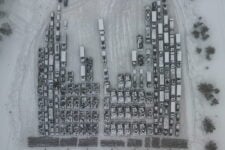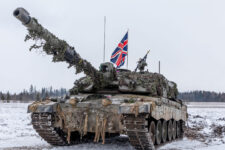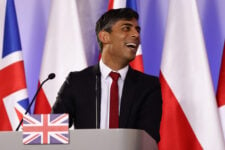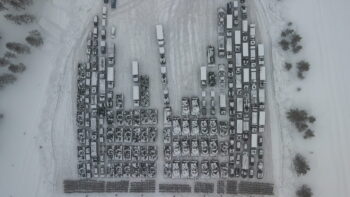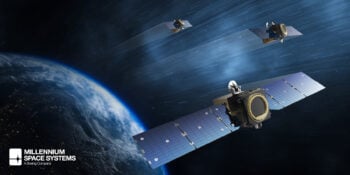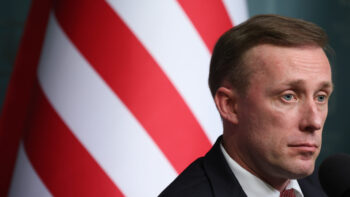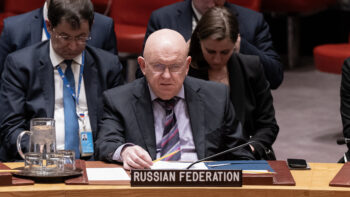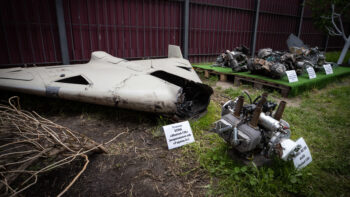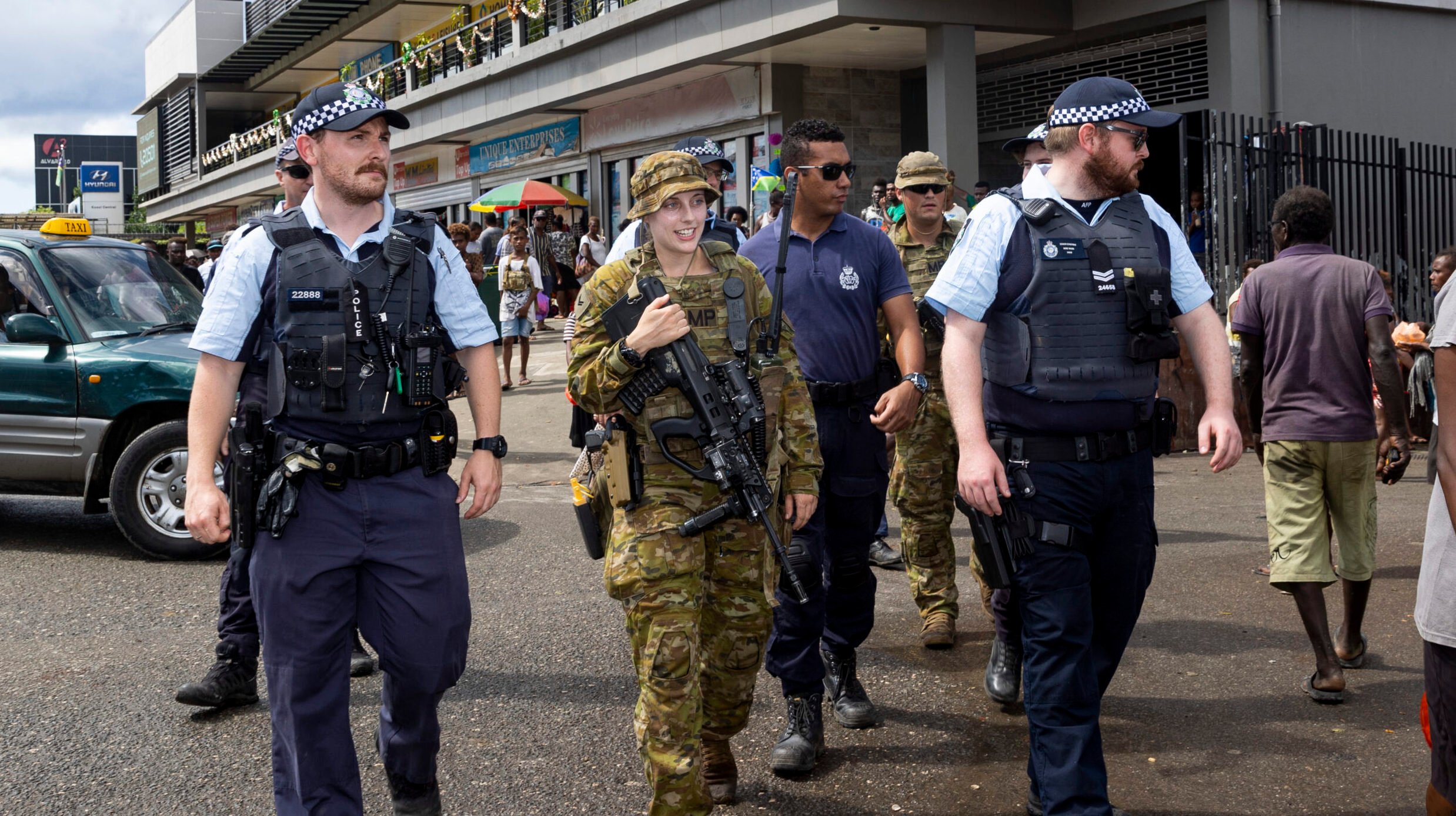
Australian Army Corporal Charley Gledhill from Joint Task Group 637.3 and officers from the Australian Federal Police and RSIPF during a multi-agency policing patrol at the Port of Honiara, Solomon Islands on 15 December 2021. (Credit: Australia’s Ministry of Defence)
UPDATED 4/19/2022 at 2:08 PM AEST with White House announcement of senior officials’ visit to Solomons, Fiji and Papua New Guinea.
SYDNEY: It’s symbolic. The American embassy in Honiara, capital of the Solomon Islands, has been shuttered since 1993. Now, the US is scrambling to reopen as quickly as it can in the face of China’s increasingly successful campaign to tighten relations with the tiny but incredibly strategic island state.
The latest sign of closer security relations with China came on April Fool’s Day when a draft security agreement between the two countries was leaked. The pattern since the US Embassy closed in 1993 seems pretty clear: The Solomons decided to break relations with Taiwan in favor of the Peoples Republic of China in 2019. And now the prime minister — whose actions have sparked riots that threatened his government’s stability — appears ready to sign a broadly worded agreement with China that would appear to grant China the right for its military ships to call, repair and resupply there and to send troops and police in the event of instability.
Ironically, Australia, New Zealand and Fiji did just that when Prime Minister Manasseh Sogavare’s hold on power appeared unsteady in November last year and he asked Australia for help under a treaty the two nations signed in 2017. Australia sent troops and members of its highly trained Australian Federal Police to patrol and tamp down the disturbances. New Zealand also sent troops and police; about a dozen Kiwis remain in the Solomons.
This wasn’t Australia’s first Solomon rodeo. The bilateral, Australian-led Regional Assistance Mission to the Solomon Islands (RAMSI) started in 2003 in response to “prevailing atmosphere of lawlessness, widespread extortion, and ineffective police” and lasted 14 years. At its end the two countries inked the security treaty that underpins the most recent deployment. Ironically, a small group of Chinese police are already on the islands, training Solomon Islands police.
As soon as the draft agreement with China was leaked online it sparked a furor as its terms became clear, especially here. Since World War II, Australia has been arguably the principal economic and security partner of the Solomon Islands.
To get some idea of just what a shock the proposed agreement was, the defense minister of New Zealand, Peeni Henare, admitted he and his Australian counterpart, Peter Dutton, were “caught off guard.”
“We were both surprised, because the intelligence we were getting didn’t exactly match that,” Henare said in a March 29 interview with the Kiwi website “stuff.” He was in Australia meeting with Dutton. “We knew that there were some challenges there, with respect to China, but the leaked draft agreement … it did catch me as a surprise, and even Minister Dutton.”
Aside from the diplomatic shifts that are happening under Sogavare, what does all this mean for defense of the region?
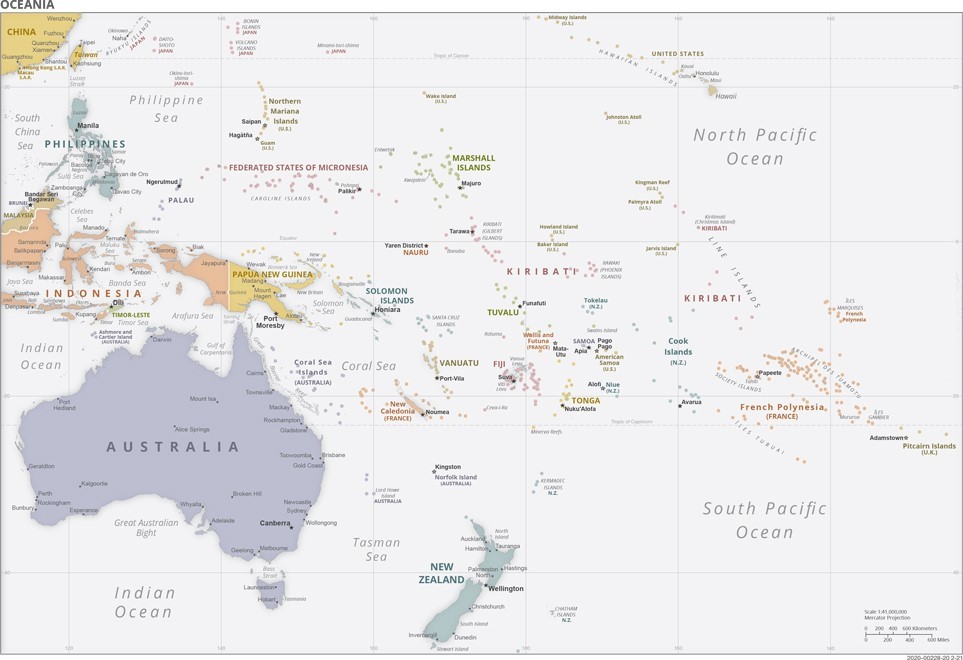
CIA Factbook’s Oceania political map
First, there’s the simple geography. Should Chinese defense forces regularly visit the Solomons, it would give them a base of operations about 1,200 miles from the eastern coast of Australia. If you look at the map of Oceania above, the implications should become instantly clear. China would have access to a crucial location from which to broaden its ambit throughout the entire Pacific island archipelago. As a reminder, the capital, Honiara, is on an island called Guadalcanal.
“A lot of things change in warfare. Not geography. Where … Solomon Islands are matters. It did then and it does now,” US Marine Commandant Gen. David Berger said Wednesday in an appearance at the Australian Strategic Policy Institute in Canberra.
A top Australian commander said the agreement would “change the calculus” of operations in the Pacific.
“We would change our patrolling patterns and our maritime awareness activities,” the chief of Joint Operations, Lt. Gen. Greg Bilton, told reporters on March 31. “They’re in much closer to the Australian mainland obviously, and that would change the way we would undertake day-to-day operations, particularly in the air and in the sea.”
A host of senior Australian leaders, including the minister for the Pacific, have asked or urged Sogavare to drop the agreement with China. The president of Melanesia, David Panuelo, raised the specter in a letter to the prime minister of a terrible war in the Pacific like the one that swept the islands during World War II. Senior US officials have cautioned the Solomon’s leader against the agreement.
Attempting to rectifying the long period of diplomatic neglect, US Secretary of State Antony Blinken announced the reopening of a US embassy in Honiara during a Feb. 12 visit to Fiji. There is a consulate there already.
On Tuesday morning here, the White House announced that:
“This week, National Security Council Indo-Pacific Coordinator Kurt Campbell and Assistant Secretary of State for East Asian and Pacific Affairs Daniel Kritenbrink will lead a delegation of U.S. government officials to three Pacific Island nations: Fiji, Papua New Guinea, and the Solomon Islands. The delegation—which will include representatives from the National Security Council, the Department of State, the Department of Defense, and the United States Agency for International Development—will seek to further deepen our enduring ties with the region and to advance a free, open, and resilient Indo-Pacific. In Hawaii, the delegation will consult with senior military officials and regional partners at United States Indo-Pacific Command. In Fiji, Papua New Guinea, and the Solomon Islands, the delegation will meet with senior government officials to ensure our partnerships deliver prosperity, security, and peace across the Pacific Islands and the Indo-Pacific. They will also meet with representatives of the Pacific Islands Forum, a critical driver of regional action, to discuss issues of importance to the Pacific as a whole.”
During the State Department’s press briefing soon after the White House announcement, spokesman Ned Price made clear that the US doesn’t entirely believe that the Solomon’s pledge the agreement won’t result in a Chinese military base.
“Despite the Solomon Islands Government’s comments, the broad nature of the security agreement leaves open the door for the deployment of PRC military forces to the Solomon Islands. We believe that signing such an agreement could increase destabilization within the Solomon Islands and will set a concerning precedent for the wider Pacific Island region,” Price said in reply to a question.
Chinese officials have reacted with indignity to calls for scrapping the deal, saying that the Solomons are a sovereign country, no one should treat them like a colony and they have the right to decide their own relations.
Perhaps the best argument they’ve offered is this, from Chinese Foreign Ministry spokesperson Wang Wenbin on April 1 when the agreement was exposed: “China-Solomon Islands cooperation does not target any third party and is not in conflict with Solomon Islands’ cooperation with other countries. Instead, it complements the existing regional cooperation mechanisms in a positive way.”
All this is not an abstract exercise for Australia. Long history and interests have tied the Solomons and Australia together. And the Aussies have one special, more personal reason for their interest in the island’s future: an AFP officer was shot and killed there in 2004 during a patrol, trying to help bring order to the Solomon Islands.
